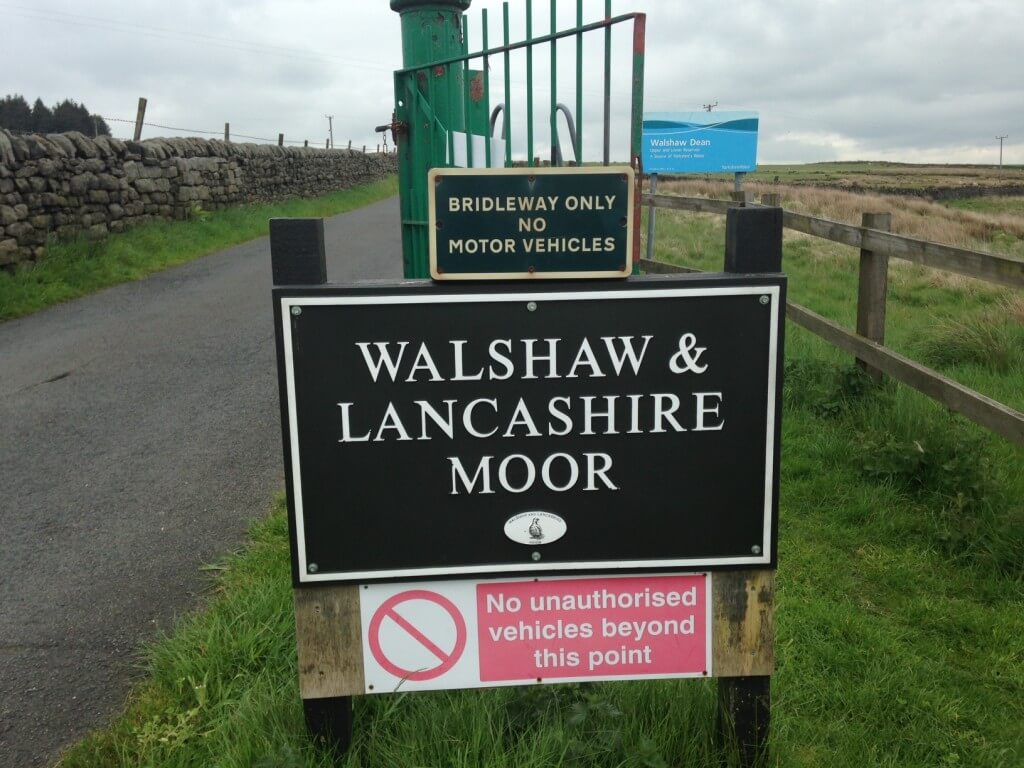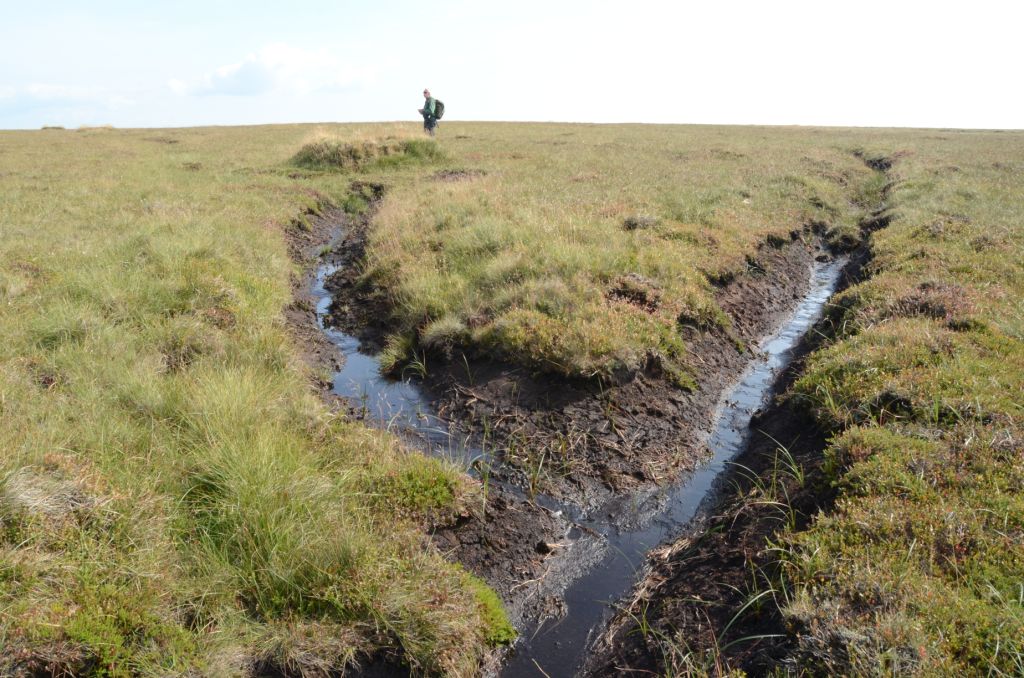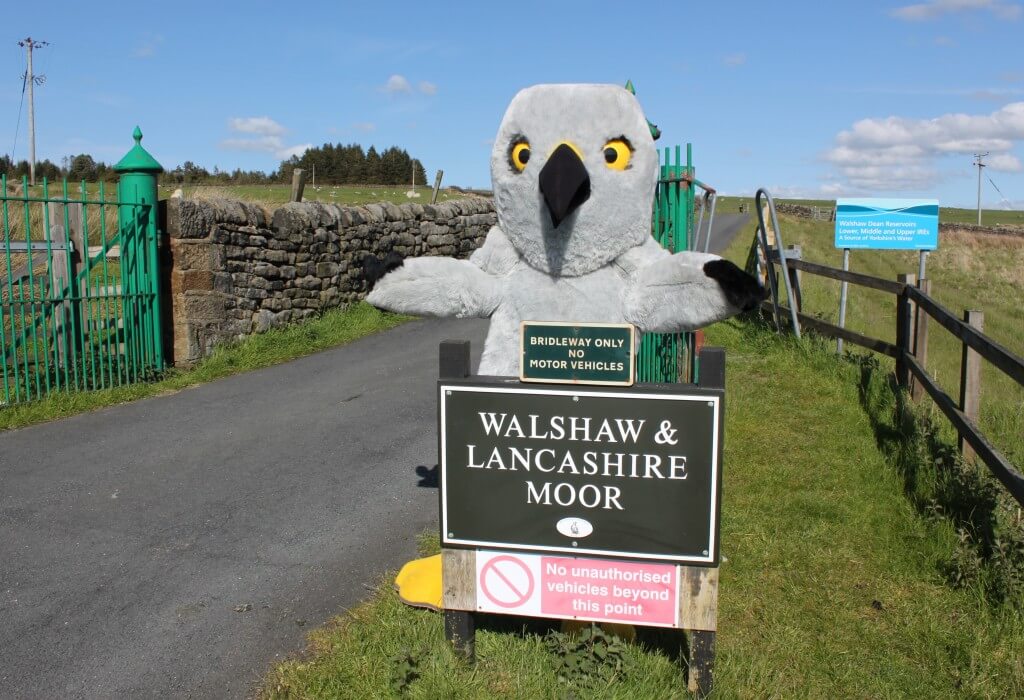
Rumour has it that Natural England has agreed a highly contentious Moorland Plan with the Walshaw Estate – the famous grouse moor, owned by millionaire businessman Richard Bannister, which sits above Hebden Bridge.
I wrote in this blog on 2 October 2017 ‘It remains to be seen whether NE will really dig their heels in over burning consents or whether they will cave in to grouse moor managers, or allow other damaging operations such as building tracks all over our hills as a quid pro quo for properly controlled heather burning.’.
 The first mention of Walshaw Moor on this blog was on 19 March 2012 where I wrote ‘Last week Natural England ‘reached an agreement’ with the Walshaw Moor estate which is feared by some to be a euphemism for caving in to intense pressure from grouse shooting interests.’ and today I am wondering whether we can use the same phrase again almost six years later.
The first mention of Walshaw Moor on this blog was on 19 March 2012 where I wrote ‘Last week Natural England ‘reached an agreement’ with the Walshaw Moor estate which is feared by some to be a euphemism for caving in to intense pressure from grouse shooting interests.’ and today I am wondering whether we can use the same phrase again almost six years later.
How much burning will be reduced? How many tracks restored to blanket bog? How many ditches filled in? Or has NE caved in again?

You can catch up with the important role that Walshaw Moor and its management have played in the campaign to ban driven grouse shooting either by reading Inglorious (pp149-57, 175-6 and 190-2) or by entering ‘Wuthering Moors’ into the search engine on this blog and reading the previous 54 blogs on the subject.
But here are some highlights:
Wuthering Moors 1 – NE reach a tame agreement with Walshaw Moor after abandoning a court case earlier in the year.
Wuthering Moors 5 – Looking back at previous transgressions on Walshaw Moor, in 2005 Dr Andy Clements, then a senior staff member of English Nature said of Walshaw Moor ‘Dumping and construction of tracks in this manner, without English Nature’s consent, has caused significant damage to this important site. We will try to maintain positive partnerships with owners and occupiers, but we will prosecute when necessary.’. Andy is now on the board of Natural England.
Wuthering Moors 20 – through persistence I shook a few details out of Defra on correspondence between them (in particular their grouse moor-owning minister at the time, Richard Benyon – who remembers him?), and the Moorland Association, who were then ‘headed up’ by their secretary Martin Gillibrand (who remembers him?) and their Chair, Ed Bromet (who remembers him? Mr Bromet is, I believe, the outgoing shooting tenant on Ilkley Moor). there are also details of correspondence with Natural England (with their then Chief Executive Helen Phillips – who remembers her?).
Wuthering Moors 23 – a bit of a summary of events up until then (July 2012).
Wuthering Moors 26 – local campaigners march to ban the burn on Walshaw Moor.
Wuthering Moors 28 – RSPB takes a complaint to tthe EU about burning activities on Walshaw Moor and the permissions given on many other grouse moors across northern England.
Wuthering Moors 34 – Defra’s response to the EU (which took quite a lot of getting but arrived inSeptember 2013)
Wuthering Moors 35 – a response by me to Defra’s response to the EU.
Wuthering Moors 38 – photographs of sensitive management of blanket bog.

Wuthering Moors 39 – a magic track where there used to be a stream.
Wuthering Moors 40 – RSPB calls for end to burning of blanket bogs.
Wuthering Moors 43 – more from RSPB
Wuthering Moors 45 – confirmation from NE that restoration of Walshaw Moor is not part of the deal that you the taxpayer are funding and that, at the time (April 2014), thee were well over 100 other burning consents extant on other sites in northern England.
Wuthering Moors 48 – Henry goes to Walshaw Moor in July 2015.
Wuthering Moors 52 – does moorland drainage on Walshaw Moor exacerbate flooding of the Calder Valley?
Wuthering Moors 54 – a study that suggests that drainage and burning at Walshaw Moor might well exacerbate flood risk downstream.

The EU Commissioners have sat on the RSPB complaint for five and a half years.
Keith – not exactly. They actually took it up as their own complaint which is what needed to happen. I would be fairly sure that from that point on the slowness of Defra was a large part of the glacially slow pace.
These things will be a lot quicker if we leave the EU – we will quickly be told to go away because Defra’s mates who shoot grouse know best.
But not if we get an independent body – isn’t that something Gove has intimated?
It is certainly what we need.
By-the-way, why didn’t the RSPB complaint simply go to the European Court? It would have been over-and-done-with by now.
I have been reading the Law Gazette.
https://www.lawgazette.co.uk/law/european-justice-union-problems/5050799.article
“When practitioners are asked to describe their recent dealings with either the Court of Justice or the General Court, their responses catalogue a list of complaints. These include: opaque procedures; a lack of competence among judges; severe delays; a lengthening backlog of cases; and a tendency to power-grab to advance political goals.”
“Hugh Mercer QC, who chairs the Council of Bars and Law Societies of Europe permanent delegation to the CJEU, says: ‘It used to be five years and some cases have gone up to eight, nine or even 10 years. This is manifestly wrong. It means that you have to advise clients that, if particular types of case are going to get put on the back-burner in Luxembourg, it may not be worth bringing a challenge in that court.’”
“These delays are starting to cost the General Court dear. In the last year there have been five actions for damages brought before the court for breach of the right to have cases heard within a reasonable time; the total damages claimed has amounted to €26.8m, the CJEU said in April. (2015)”
Mercer says “If the commission gets away with things which it shouldn’t get away with, either because cases take too long or because the court doesn’t investigate sufficiently or doesn’t apply an intensity of review which is sufficiently great to overturn unjust cases, then the commission has too much power. Obviously the courts are the counterbalance to political power.”
Iain Connor heads Pinsent Masons’ contentious intellectual property practice.
“The secrecy of judges’ deliberations adds to the perceived lack of transparency, as do other procedural rules. ‘The process lacks transparency at a level which is completely wrong,’ Connor says, commenting on his experience of dealing with the Court of Justice. ‘They can accept representations from 28 member states, but unless you are party to those proceedings, you have no access to those representations.’ These include submissions by the commission. Connor believes this contravenes the right to fair trial and fair hearing of the European Convention on Human Rights.”
From http://www.curia.europa.eu
787 Cases pending in the Court of Justice (2014); 872 pending in 2016.
1,423 Cases pending in the General Court (2014); 1486 pending in 2016.
From http://www.theguardian.com/politics/2018/feb/06/brexit-eu-power-punish-uk-transition-period-sanctions
“Brussels will have the power to punish the UK ‘at will’ during the Brexit transition period by closing off parts of the single market to British companies, according to a leaked legal document drawn up by the EU.
The 27 remaining member states want to be able to act against the UK *without having to go through the potentially lengthy process of bringing cases to the European court of Justice*, should ‘Brussels’ come to the judgment that Britain has infringed EU law.”
It is one law for the Commission and another for everyone else. Always has been. See Schengen.
As a member of the BTO, I wish I knew more about Dr Andy Clements views.
So it goes on – in 2012 after your blog a friend and I went for a walk on Walshaw Moor to take a look. We were approached by a game keeper (quad and gun) who told us we shouldn’t be there. When we pointed out that it was open access land he said we should be on a path – no! its open access land. Well you can’t camp he said and drove off. We obviously weren’t wanted!!
While Andy may well have a personal view he definitely won’t be airing it in public as director of the BTO because the BTO is not a lobbying organisation. Before you say ‘it should be’ there are firstly lots of other organisations that do – and should – have a position and secondly the BTO really does have far more impact through its unbiased production of (often inconvenient) facts.
If you want to point a finger, point it at the National Trust who it recently emerged has given shooting in the Peak District to a man who has tried to obstruct the police and RSPB in their pursuit of law breakers.
Unfortunately Mo, this is all too often many people’s only sort of interaction with a keeper, especially one at the younger end , who maybe does not quite understand his full range of responsibilities to his
profession.
In my employment, ìnteraction with the public, and maintaining the visitor friendly reputation of the estate, was at times as important as providing game to be shot.
Knowing the rights of access is obviously an important step in this direction.
Why did your request go to the Defra press office? Is this an indication of who is making the decisions? We need an independent nature conservation body! I think Gove has only suggested that they will consult over having one – if/when he does there needs to be a massive response in favour.
greenfly – I contacted the press office bcause they are likely to be there and it is NE who decided to treat my very reasoanable request imder EIR/FOI – a sad state of affairs in itself.
A sad state indeed. Such an agreement should automatically be on the public record.
All requests to a relevant public body for data or info covered by the legislation are by default subject to the EIR/FOI. It is a quaint little UK dodge that parts of the civil service try to treat some requests as not being FOI requests. You do not have to state that it is FOI or EIR for it to be subject to the law and processes.